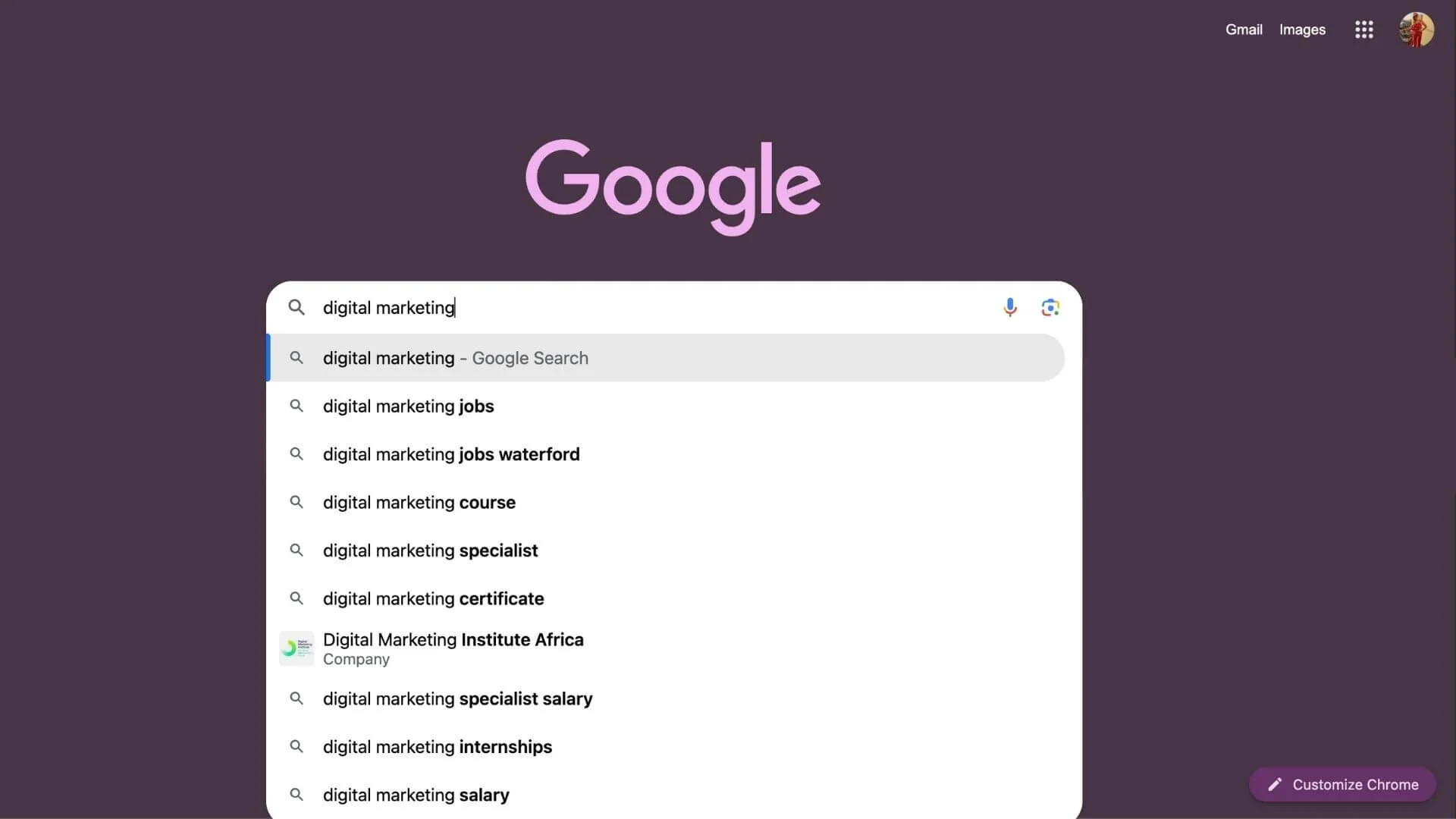LSI Keywords: What Are They and Why Should You Care?
If you’ve spent any time researching SEO, chances are you’ve come across the term LSI keywords. Maybe you’ve even asked yourself, “What are LSI keywords, and do they really matter?”
Here’s the short answer: despite the buzz around LSI keywords, they’re technically outdated. But the concept behind them, using semantically related words to clarify your content, is still incredibly relevant to SEO success.
In this blog, we’ll break down what LSI keywords are (and aren’t), how Google actually understands your content, and how to use related terms to improve your rankings. By the end, you’ll know how to optimize smarter, and why it’s time to let go of the LSI myth once and for all.
Key Takeaways: LSI Keywords
LSI keywords are outdated, Google doesn’t use Latent Semantic Indexing in its algorithm.
The real value lies in semantic keywords, which help clarify meaning and match search intent.
Related terms support your content’s relevance, context, and depth, key for modern SEO.
Google relies on NLP, entity recognition, and AI tools (like BERT and MUM) to understand content.
Finding semantically related keywords is easy using Google Autocomplete, People Also Ask, SEO tools, and common sense.
Using semantic keywords naturally, in titles, headings, and body copy, can improve rankings and user experience.
Forget keyword stuffing; instead, focus on topic authority and clarity to build trust and visibility.
At the end of the day, modern SEO is about meaning, not keyword tricks, write for people, optimize for Google.
What Are LSI Keywords?
LSI stands for Latent Semantic Indexing, a concept that originally came from an academic paper published in the late 1980s. The idea was to help computers understand the relationship between words, even if they weren’t exact matches, by analyzing large sets of documents for patterns.
So when we talk about LSI keywords, we’re really referring to words and phrases that are closely related in meaning to a main keyword. For example, if your target keyword is “apple,” related terms might include “fruit,” “orchard,” or “apple pie.” Or if the context is tech, “MacBook,” “iOS,” or “iPhone.”
It’s easy to see why this concept caught on in the SEO world.
But here’s the kicker: Google doesn’t use latent semantic indexing.
Wait, Are LSI Keywords a Myth?
In a word, yes. And Google has said so directly.
According to Google’s Search Liaison team (and confirmed by John Mueller, Google’s Search Advocate), there’s no such thing as “LSI keywords” in the way people often use the term. The technology is outdated, not built for the scale of the internet, and doesn’t reflect how modern search engines actually understand language.
So if you’ve been told to “stuff in more LSI keywords” to rank higher, you can ignore that advice.
But this doesn’t mean the whole idea of using related terms is useless. In fact, it’s essential for writing content that ranks well today. We just need to shift the way we talk about and use them.
What Google Actually Uses Instead of LSI
Rather than relying on 1980s indexing methods, Google now uses far more sophisticated tools to understand your content.
These include:
Natural Language Processing (NLP): This helps Google parse meaning, tone, and context from your writing.
Entity recognition: Google tracks specific people, places, and concepts, like “Nike,” “vegan recipes,” or “digital marketing.”
The Knowledge Graph: A massive database of facts and relationships between topics.
AI and machine learning algorithms like BERT and MUM: These help Google match search intent to the meaning of your content, not just the words on the page.
So when someone searches for “jogging benefits,” Google knows to prioritize pages that also mention “cardiovascular health,” “calorie burn,” and “endorphins”, even if those words aren’t in the search query.
The takeaway? It’s not about LSI keywords. It’s about semantic relevance.
Why Related Terms Still Matter in SEO
Even though LSI keywords aren’t real, using semantically related terms in your content still helps search engines understand what your page is about.
Here’s why they matter.
1. They Support Search Intent
If someone searches for “SEO tools,” they might also be interested in comparisons, reviews, pricing, and terms like “Semrush,” “Ahrefs,” or “rank tracking.” Including those topics signals to Google that your content is comprehensive and aligned with what users want.
2. They Help Differentiate Similar Topics
Search engines need help figuring out if your page is about “bats” the animal or “bats” the baseball equipment. Related terms give context.
3. They Boost Topic Authority
Using a wide range of relevant terms shows depth and expertise. That’s great for ranking, and for building trust with your readers.
4. They Improve Your Chances Of Ranking For Multiple Keywords
Pages rich in semantically related terms tend to rank for a broader range of queries, not just your primary keyword.
How to Find LSI Keywords (Or More Accurately, Semantic Keywords)
Now that we’ve cleared up the terminology, let’s talk about how to actually find semantically related keywords that will strengthen your content.
Here’s how to do it.
1. Use Google Autocomplete
Start typing your keyword in the Google search bar and see what the dropdown suggests. These are real phrases people are searching for, and they often reveal related terms and intent.
2. Check The “People Also Ask” Section
These common questions show what other angles you might want to cover in your content.
3. Review Related Searches
Scroll to the bottom of a Google results page to see searches that are contextually similar to yours.
4. Use Seo Tools Like Semrush Or Ahrefs
Tools like the SEO Content Template or Keyword Magic Tool can show you semantically related words that top-ranking pages are using. Semrush even highlights semantic suggestions in real-time as you write.
5. Look At Your Top Competitors
Check what other keywords top-ranking pages also rank for. This can uncover related subtopics you may have missed.
6. Use Common Sense
If you're writing about “content marketing,” it’s natural to mention blogs, social media, SEO, calls to action, and customer personas. Think like your reader and build context around what they care about.
Where to Use Semantic Keywords in Your Content
You don’t need to force every related keyword into your article, and you definitely shouldn’t “stuff” them in unnaturally.
Instead, aim to use them strategically in areas like:
Page titles and meta descriptions
Headings (H2s and H3s)
Intro and conclusion paragraphs
Image alt text
Internal links
Naturally within the body of your content
Pro tip: If you’re writing valuable, human-focused content that covers a topic in depth, many of these terms will show up on their own. Use tools to fill in any blind spots, but don’t overthink it.
Examples of Semantic Keywords in Action
Let’s say your primary keyword is “meal prep.” Some related terms that help add context might include:
Grocery list
Portion sizes
Macros
Meal containers
High-protein recipes
Time-saving tips
Sunday routine
Notice that not all of these are synonyms. But they’re all part of the broader topic, and using them tells Google, “This page is truly about meal prep, not just using the word ‘meal prep’ repeatedly.”
That’s the real goal.
Common Myths About LSI Keywords
Let’s clear up a few lingering misconceptions.
Myth: Google uses LSI technology.
Reality: Google has confirmed it does not use LSI. It relies on modern AI and semantic analysis instead.
Myth: You need to find a tool that gives you the perfect set of LSI keywords.
Reality: No such tool exists, just tools that help uncover semantically relevant terms.
Myth: The more LSI keywords you use, the better.
Reality: Quality over quantity. Use them naturally to enhance meaning, not to tick boxes.
So… Should You Still Care About LSI Keywords?
Yes, but not in the way they’re often pitched.
The idea of sprinkling in magic “LSI keywords” to game the algorithm is outdated. But the strategy behind it, writing rich, relevant content that fully explores a topic, is exactly what modern SEO demands.
So if you’ve been focusing on one keyword per page, it’s time to level up. Think bigger. Use related terms to support search intent, add value, and give Google a clearer picture of what your content is really about.
And if you’re still using the phrase LSI keyword, no worries. Just know you’re really talking about semantic relevance. Google’s smart enough to get the message.
Modern SEO Is About Meaning, Not Just Keywords
Today’s SEO isn’t about chasing keyword density or outdated tricks. It’s about clarity, intent, and relevance.
When you use semantically related words to round out your content, you help search engines and readers alike. You create a better experience. You build authority. And yes, you increase your chances of ranking.
At New Hill Marketing, we help small to mid-sized businesses develop SEO strategies that go beyond keywords and focus on long-term growth. From content strategy to technical optimization, we’re here to make sure your website speaks your audience’s language, and Google’s too.
Ready to Rank Smarter?
Stop worrying about outdated SEO myths and start building real momentum.
Contact New Hill Marketing today to get a content strategy that’s backed by data, built for people, and optimized to perform.
FAQs: LSI Keywords
What Is an LSI Keyword?
An LSI keyword (short for Latent Semantic Indexing keyword) is a term that’s related in meaning to your main keyword. For example, if your content is about "dog training," LSI keywords might include "positive reinforcement," "obedience," or "leash."
That said, Google does not actually use LSI technology, so while the term is common in the SEO world, what people really mean are semantically related keywords that help search engines understand your content better.
How Do I Find LSI Keywords?
Even though true “LSI keywords” don’t exist, finding related terms for SEO is still a smart move. Here are a few ways to discover them:
Use Google Autocomplete to see related searches
Look at the “People Also Ask” and Related Searches sections in Google
Use tools like Semrush, Ahrefs, or Google Keyword Planner to uncover terms top-ranking pages are using
Analyze your competitors’ content for commonly used phrases
Use common sense, what else would your audience expect to read about in context?
What’s The Difference Between LSI and Semantic Keywords?
LSI keywords refer to a specific indexing method from the 1980s that Google doesn’t use. Semantic keywords, on the other hand, are thematically related words or phrases that give context to your content.
Google uses semantic search powered by AI and natural language processing to understand meaning, not outdated LSI techniques. So while LSI as a technology is irrelevant, semantic keyword strategies are essential.
What Is The LSI Term?
The term LSI stands for Latent Semantic Indexing, a method developed in the late 1980s to help computers understand relationships between words. In SEO, people often use “LSI” to describe related terms that support a primary keyword, but this usage is a bit of a misnomer.
Google has confirmed it doesn’t use LSI to rank content. Instead, it relies on modern tools like machine learning and natural language processing to understand meaning.




